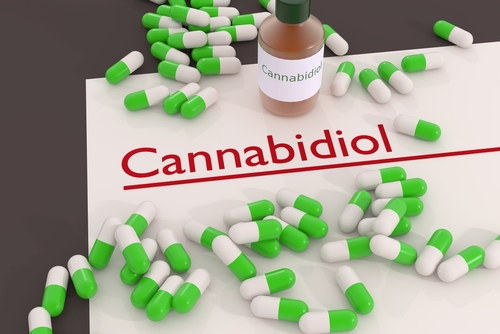Cannabidiol Approved by FDA for Dravet May Help Angelman Patients, ABOM Director Says
Written by |

The U.S. Food and Drug Administration (FDA) has approved Epidiolex to treat Dravet and Lennox-Gastaut syndromes, making history as the first approved therapy for Dravet, as well as the first marijuana-derived treatment to receive FDA approval for any indication.
The FDA’s action also may bring hope to patients with other rare diseases marked by seizures, like Angelman syndrome.
GW Pharmaceutical‘s plant-derived cannabinoid medicine was approved to treat seizures associated with both Dravet and Lennox-Gastaut in patients ages 2 and older. But Terry Jo Bichell, director and scientific officer of the Angelman Biomarkers and Outcome Measures (ABOM) Alliance, believes it also may be of help to certain Angelman patients.
Some adults with Angelman experience a type of myoclonic activity — involuntary muscle spams — that is not formally considered a seizure, but can cause debilitating tremors and muscle contractions, Bichell said.
“There are people with Angelman syndrome who cannot get seizure control with anything that was previously on the market,” she told Angelman Syndrome News. “Many families have been [using] CBD-based [cannabidiol-based] treatments, with some benefits. This decision by the FDA puts another tool in the toolbox to treat people with Angelman syndrome.”
Still, she is hoping for clinical trials that will test Epidiolex’s safety and effectiveness in people with Angelman, much like the studies in Dravet patients that led to the therapy’s approval.
“These don’t have to be huge trials, because Angelman syndrome is a rare disease,” Bichell said, “but it would still be important to know definitively if this is the right drug for AS.”
Clinical development of Epidiolex included three randomized, controlled Phase 3 clinical trials and an open-label extension study in which Epidiolox, added to other anti-epileptic therapies, significantly reduced seizure frequency in Dravet and Lennox-Gastaut patients.
Following positive results, an FDA advisory committee voted unanimously in April to support Epidiolex’s approval for Dravet and Lennox-Gastaut. The therapy previously had been granted orphan status, fast-track designation, and priority review to support and speed its approval in the U.S.
The full regulatory agency agreed with its committee’s decision.
“This approval is the culmination of GW’s many years of partnership with patients, their families, and physicians in the epilepsy community to develop a much needed, novel medicine. These patients deserve and will soon have access to a cannabinoid medicine that has been thoroughly studied in clinical trials, manufactured to assure quality and consistency, and available by prescription under a physician’s care,” said Justin Gover, the pharmaceutical company’s CEO, in a press release.
“In addition to another important treatment option for Lennox-Gastaut patients, this first-ever approval of a drug specifically for Dravet patients will provide a significant and needed improvement in the therapeutic approach to caring for people with this condition,” Billy Dunn, MD, said in an FDA press release. Dunn is director of the Division of Neurology Products in the FDA’s Center for Drug Evaluation and Research.
Cannabidiol
Cannabidiol (CBD) is one of the most abundant compounds in the marijuana plant. Many clinical trials have been conducted or are currently underway testing CBD’s ability to treat a variety of ailments.
CBD is one of more than 80 compounds found in the marijuana plant, according to a statement from Scott Gottlieb, MD, FDA commissioner. Epidiolex is a purified form of the compound in a controlled dosage, which doctors can prescribe to their patients confident in the consistency of its formulation. CBD does not contain THC, the psychoactive ingredient in marijuana, so it cannot get patients high.
“This product approval demonstrates that advancing sound scientific research to investigate ingredients derived from marijuana can lead to important therapies. This new treatment provides new options for patients,” Gottlieb said in the statement.
“This is an important medical advance. But it’s also important to note that this is not an approval of marijuana or all of its components. This is the approval of one specific CBD medication for a specific use. And it was based on well-controlled clinical trials evaluating the use of this compound in the treatment of a specific condition,” he said.
Because CBD is still a Schedule 1 drug — those with a high potential for abuse and no medical value — GW cannot market Epidiolex until the U.S. Drug Enforcement Administration reclassifies it, which is anticipated to occur within 90 days.
Epidiolex is expected to be available to patients by this fall.
The compound also is under review by the European Medicines Agency. A decision on whether to recommend approval should take place in the first quarter of 2019.





